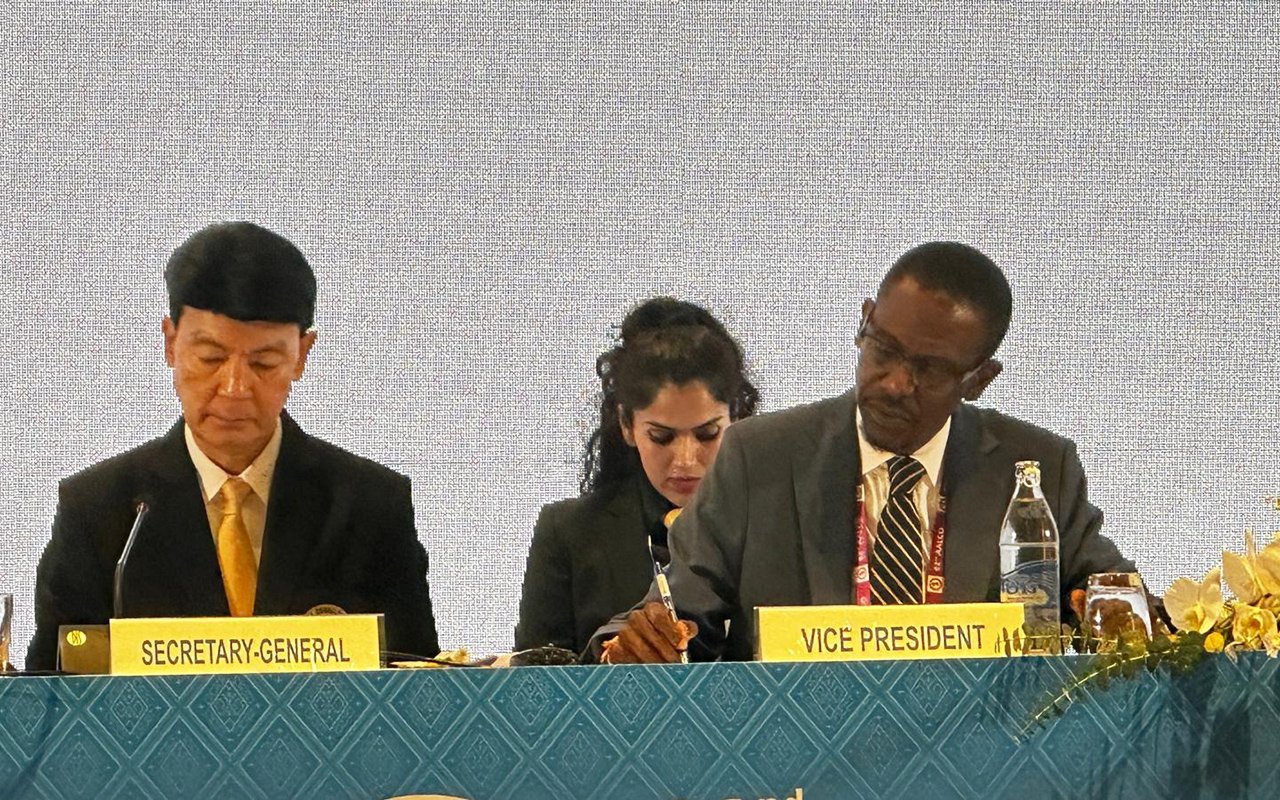Prime
Insufficient funding hindering climate-resilient WASH services

Left to Right: Basil Bataringaya, MP for Kashari North Mbarara; Minister of State for Primary Health Care, Ms. Margaret Muhanga; and Ms. Joyce Mpalanyi Magala, Country Director of WaterAid Uganda, pose with healthcare stakeholders during the launch of the Annual National Influencing Plan in Kampala. Photo/RACHEAL NABISUBI
What you need to know:
Mr Hamumi Masudi, Director of Policy and Advocacy at WaterAid Uganda, stressed that climate change poses a significant threat to the achievement of inclusive WASH services in the country
Healthcare stakeholders have raised concerns that insufficient funding is hampering the provision of climate-resilient, sustainable, and safe Water, Sanitation, and Hygiene (WASH) services in Uganda, particularly during climate-related events such as floods and droughts. These challenges leave many communities struggling to access essential WASH services without traveling long distances.
Mr Hamumi Masudi, Director of Policy and Advocacy at WaterAid Uganda, stressed that climate change poses a significant threat to the achievement of inclusive WASH services in the country. He noted that while investing in WASH offers good value for money, it remains undervalued and underfunded, leading to poor services in healthcare facilities and exposing women and health workers to healthcare-associated infections.
“Uganda ranks among the 10th most vulnerable countries out of 185 globally and is the 35th least prepared to address and respond to climate change,” Mr Masudi said.
He highlighted the limited integration of climate-resilient WASH and behavior-change priorities into policies, strategies, and plans. This lack of funding has directly affected the delivery of climate-resilient WASH services and behavior-change interventions.
“Out of the $28.1 billion required to implement the Nationally Determined Contributions (NDC), only 15% (USD 4.1 billion) will be financed by the government, leaving a deficit of 85% (USD 24 billion) to be mobilized externally,” he added.
During the unveiling of the Annual National Influencing Plan in Kampala, Mr. Masudi underscored the significant financing gap in implementing the NDC, with most of the funds needing to be mobilized from external sources.
The National Influencing Work Plan for the next five years stresses the importance of adequate and clean water, sanitation, and hygiene resources in maintaining overall well-being. Incorporating WASH interventions into healthcare programs can not only improve patient health outcomes but also contribute positively to the economy.
Globally, over 1 billion people visit healthcare facilities (HCFs) with inadequate or no WASH services. In Uganda, the situation is dire, with 38.8% of HCFs having limited or no access to safe water, 81.5% with limited sanitation access, and 9.7% with no sanitation services. Additionally, 20.9% of the facilities have no or limited safe disposal of medical waste.
The Ministry of Health (MoH) has noted that Shs656 billion is needed to improve WASH access in healthcare facilities. However, challenges such as the absence of a public health financing strategy, inadequate locally generated revenue, and dwindling donor funding to the health sector pose significant obstacles to raising the required funds.
Ms Joyce Mpalanyi Magala, Country Director of WaterAid Uganda, emphasized the importance of integrating climate-resilient WASH measures and behavior change priorities into policies, strategies, and plans. She also highlighted the difficulties caused by increased government debt servicing and interest payments.
“The Annual National Influencing Plan addresses the major challenges of providing climate-resilient WASH services and integrating them into public health. Many healthcare facilities lack adequate WASH access, which threatens the safety of caregivers and negatively impacts the economy,” Ms. Magala said.
In 2022, WaterAid and the World Bank conducted a study that found the total economic cost of healthcare-associated infections (HAIs) in Uganda to be US$580 million, equating to 1.43% of the Gross Domestic Product (GDP). The financial cost of treating HAIs was estimated at US$123 million, which accounts for 7.9% of the country’s total health expenditure.
Ms Magala called for collective efforts to improve lives through sustainable and safe WASH services, aiming to integrate WASH into the health sector to enhance public health and strengthen resilience against climate change.
The Minister of State for Primary Health Care, Ms Margaret Muhanga, commended WaterAid Uganda for its partnership with the Ministry of Health in developing WASH in healthcare facilities and contributing to the National Environmental Health Strategy.




